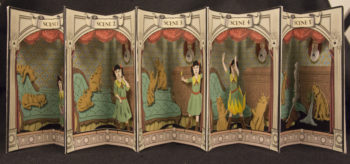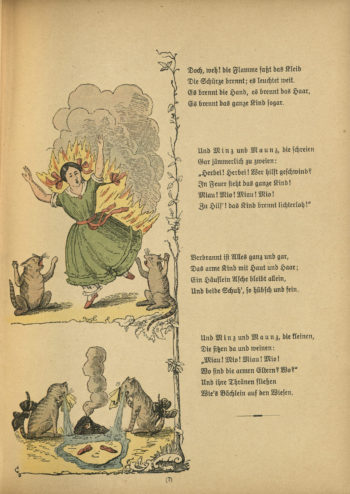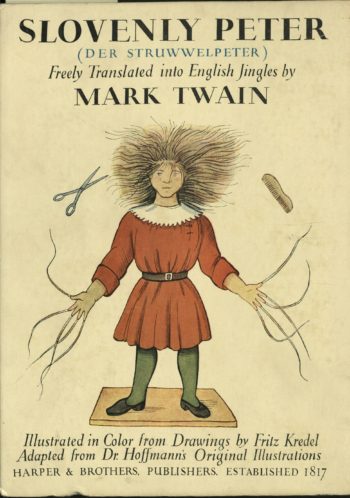Der Struwwelpeter: A Famous Children’s Book
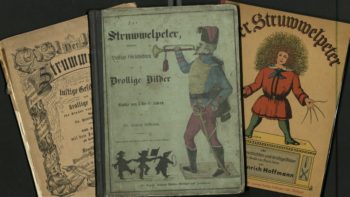
The Julian Edison Department of Special Collections has an extensive collection of children’s books, some of which are over a century old. Children’s books, and the morals they teach, can provide us with an interesting look at the fundamental values of a period and a culture. One of the more fascinating children’s books in our collections is the famous Der Struwwelpeter, a 19th century German book of rhymed cautionary tales and their darkly humorous illustrations. Washington University Libraries owns many versions of Struwwelpeter, including several that date back to the early 1900s.
About Struwwelpeter
Der Struwwelpeter, which has been translated as both Shockheaded Peter and Slovenly Peter, was originally written in Germany in 1844 by Dr. Heinrich Hoffman and immediately became very popular. The stories have been translated into a variety of languages, including an English translation by American author Mark Twain.
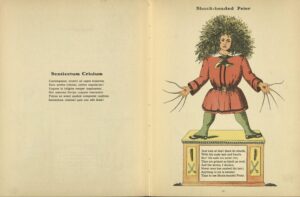
The title character is Shock-headed Peter, who is so slovenly that the narrator cannot bear to look at him, but the book features a host of other characters as well, including Johnny Head-In-Air who never looks where he is going, the plump Augustus who refuses to eat his soup, Cruel Fredrick who abuses animals and women, and many others.
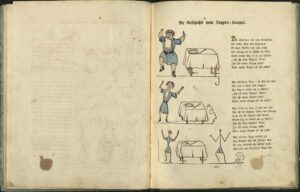
Humorous and Horrible Cautionary Tales
In the darkly humorous stories, children who have bad habits face dramatic consequences. In the story below, for example, a boy who sucks his thumb has it cut off by “the great tall tailor.”
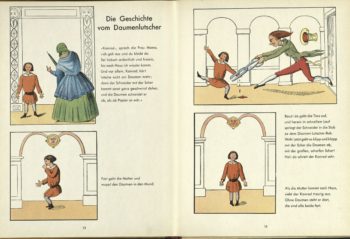
The book attacks more than bad habits, however. It also teaches children to have respect for others. In the story below, boys who make fun of the color of another child’s skin are dumped into a giant ink pot.
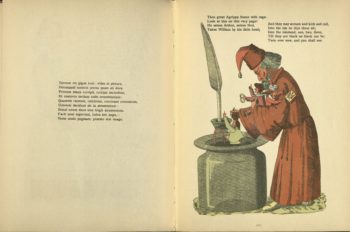
Struwwelpeter’s Continued Influence
The Struwwelpeter stories have also inspired a number of spin-offs and artistic works, including children’s games, posters, a junk opera, and at least one artist book. The book depicted below illustrates the story of a girl who played with matches and burned herself to a pile of ash.
